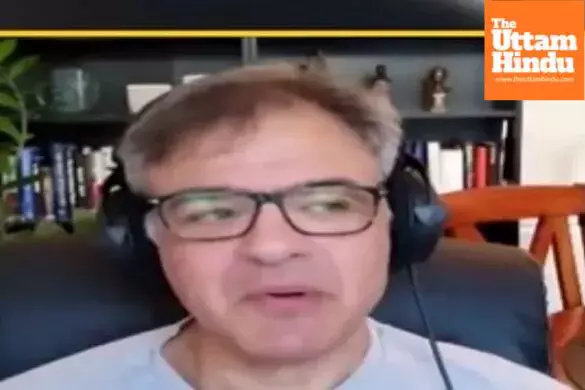Former US official says India and Pakistan were on brink of war after 2002 Parliament attack

New Delhi (The Uttam Hindu): In an interview, former CIA officer John Kiriakou spoke candidly on several key issues related to India and Pakistan. Kiriakou shared his experiences during counter-terrorism operations in Pakistan after 9/11 and shed light on the complex relationship between Islamabad and Washington. He also discussed the heightened tensions between India and Pakistan during Operation Parakram in 2002.
'War was imminent between India and Pakistan after the 2002 Parliament attack,' former US official claims : Kiriakou said that in 2002 he was fully convinced that a war could break out between India and Pakistan. In view of this danger, his family members were safely evacuated from Islamabad. He said that after the attack on the Indian Parliament in December 2001, the tension between the two countries had increased so much that America had to intervene. The US Deputy Secretary of State conducted continuous talks between New Delhi and Islamabad and found a way to reach an agreement, after which the situation became normal.
The former CIA officer admitted that at the time, the US was focused solely on al-Qaeda and Afghanistan, so India's issues were not taken seriously. Speaking on the 2008 Mumbai terror attacks, Kiriakou said he believed they were not an al-Qaeda plot, but rather the actions of Pakistan-backed Kashmiri terrorist organizations—and this was later proven to be true. He said that Pakistan was promoting terrorism in India, but the international community did not take any concrete action.
Speaking about India's response, Kiriakou said that India showed extreme restraint after the Parliament attack and the Mumbai attacks. India's policy within the CIA was called "strategic patience." However, he added that India has now reached a point where it cannot afford to have this patience misinterpreted as weakness.
He also revealed the internal divisions within Pakistan's intelligence agency, the ISI. According to him, there were actually two types of ISI operating—one trained under international cooperation and another influenced by radical elements and supporting terrorist organizations like Jaish-e-Mohammed.
Kiriakou also spoke about the early operations against al-Qaeda. He mentioned the raid on a Lashkar-e-Taiba hideout in Lahore in 2002, where three terrorists were arrested. They were found with al-Qaeda training documents, providing evidence for the first time of links between the Pakistani government and al-Qaeda.
When asked why the US did not take any concrete action against Pakistan, Kiriakou said it was a political decision by the White House. The US needed Pakistan at the time, and the relationship was not limited to India or Pakistan but was part of a global strategy.
